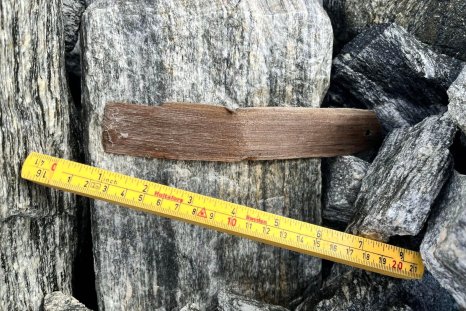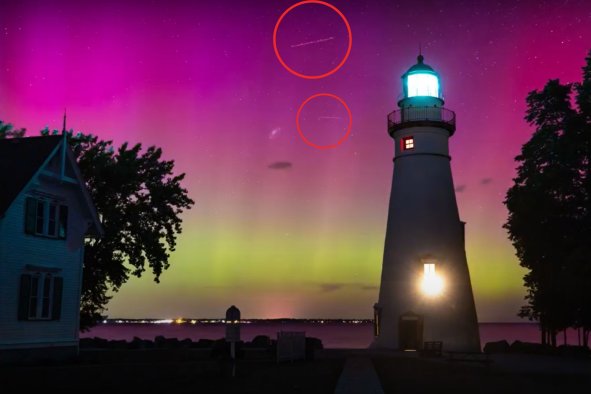Mpox has been declared a public health emergency by the World Health Organization in response to a new, potentially deadlier strain of the virus circulating in Africa.
On Thursday, the first case of this new variant was detected outside the continent, in Sweden. So what does this mean for vaccinations? Do they still work against the new variant? And do you need a booster? Newsweek spoke to experts to find out.
Mpox, formerly known as monkeypox, gained recognition during the global outbreak in 2022, affecting the U.S., Europe, Australia and many other countries. The virus comes in two "flavors"—clade I and clade II—and spreads through close contact.
The previous outbreak in the U.S. and Europe was driven by the clade II form of the virus and was mostly spread through sexual and intimate contact, with men who have sex with men being at the highest risk of infection. However, the current surge in Africa is being driven by a new variant of the clade I virus, called clade Ib, that is thought to cause more severe disease than previous variants.
Since the beginning of 2023, more than 22,000 cases of mpox are believed to have occurred in the Democratic Republic of Congo (DRC), with more than 1,200 deaths. This has likely been driven by the clade Ib variant, which has also spread to neighboring Burundi, Kenya, Rwanda and now Sweden.
"The clade 1b case in Sweden is a warning call for public health authorities to be vigilant and implement robust surveillance and contact-tracing strategies to detect possible new cases early on," said Jonas Albarnaz, a research fellow specializing in pox viruses at the U.K.'s Pirbright Institute, which specializes in infectious disease research.
Will Existing Mpox Vaccines Work Against New Variants?
To answer this question, we first need to understand how existing mpox vaccines are made.
"Two vaccines are approved against mpox: MVA-BN and LC16," Albarnaz told Newsweek. "These vaccines are based on weakened versions of a related orthopoxvirus and were developed against smallpox," which has been eradicated.
Mpox, like smallpox, is a type of orthopoxvirus. "Orthopoxviruses share many proteins that are recognized by our immune system, and therefore infection with one orthopoxvirus confers protection against a subsequent infection with another orthopoxvirus," Albarnaz said. "That's the basis of the smallpox—and now mpox—vaccine."
With that in mind, our existing vaccines should be "equally effective" against both clade II and clade I viruses, including the clade Ib variant, he said.
The main vaccine used in the United States is the MVA-BN vaccine, sold as JYNNEOS. The vaccine is given as a two-dose series with a four-week gap between doses.
Who Should Get an Mpox Vaccine?
"Vaccination is recommended for people 18 years of age and older who are at risk for mpox," Patrick Gavigan, assistant professor of pediatrics and infectious diseases at the Penn State College of Medicine, told Newsweek.
Risk for mpox is defined by the U.S. Centers for Disease Control and Prevention (CDC) as:
- Persons who are gay, bisexual or transgender or nonbinary people who in the past six months have had:
- A new diagnosis of at least one sexually transmitted disease
- More than one sex partner
- Sex at a commercial sex venue
- Sex in association with a large public event in a geographic area where mpox transmission is occurring
- Persons who are sexual partners of the persons described above.
- Persons who anticipate experiencing any of the situations described above.
The vaccine can also be given to people under 18 after being in close contact with someone with mpox.
Over a million doses of JYNNEOS have been administered in the U.S. alone, the CDC says. But do people who have already received the vaccine need booster shots?
"Booster doses currently are not recommended, outside of people who have occupational exposures," such as working in labs with the virus," Gavigan said.
Should the U.S. Be Concerned About Mpox?
The U.S. Department of Health and Human Services says that the risk to the general American public remains low. Wastewater surveillance has shown low levels of the virus across the country, with only four test sites showing up positive for clade II, the source of the previous outbreak.
Should clade I make its way to the U.S., the department said, it expects the virus would "cause lower morbidity and mortality in the United States than in the DRC."
However, that doesn't mean we shouldn't be aware of the current outbreak and its progression.
"Right now, the CDC estimates that risk to the U.S. is low, but as we have seen multiple times over the past few years, infections and outbreaks that start in other countries can quickly spread to the U.S.," Gavigan said. "It is unclear right now if the current strain/outbreak will spread to the U.S., but people and health care providers should remain cautious and aware of changes in risk level."
The major problem right now is getting enough vaccines to the countries suffering outbreaks. "Availability of vaccines is very limited, representing a major bottleneck for the control strategies," Albarnaz said.
He continued: "A coordinated global effort to contain MPXV spread in Africa may prevent what happened in 2022 from happening again. There was an ongoing clade 2 MPXV outbreak in Nigeria since 2017, with evidence of sustained human-to-human transmission, but this situation only caught global attention when it spread to several Western countries and caused the international outbreak in 2022."
As well as vaccination, the CDC recommends the following precautions to protect yourself from mpox:
- Avoid close contact with people who are sick with mpox symptoms, such as skin lesions, especially around the genitals.
- Avoid contact with wild animals in areas where mpox regularly occurs (for example, while traveling.)
- Avoid contact with contaminated people and materials such as bedding and clothing used by people who are sick.
Is there a health problem that's worrying you? Let us know via health@newsweek.com. We can ask experts for advice, and your story could be featured in Newsweek.
Disclaimer: The copyright of this article belongs to the original author. Reposting this article is solely for the purpose of information dissemination and does not constitute any investment advice. If there is any infringement, please contact us immediately. We will make corrections or deletions as necessary. Thank you.




